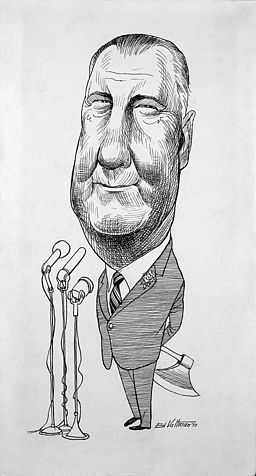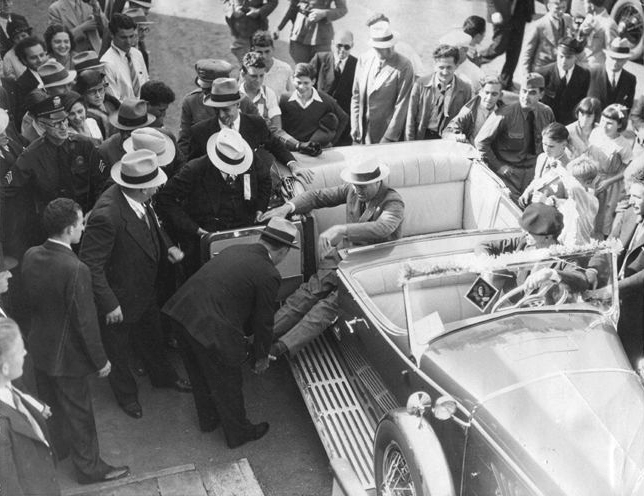Afflicting the Comfortable

In this 1919 illustration by Milo Winter for an anthology of Æsop’s Fables, the wind attempts to strip a traveler of his cloak in “The North Wind and the Sun” by blowing gales at him, with the result that the traveler draws his cloak tighter. The sun wins the challenge of getting the traveler to take off his cloak by warming him in sunlight.
There is no valid comparison to be made between a bakery owner who refuses to bake a cake for a homosexual couple getting married and a restaurant owner who refuses service to White House Press Secretary Sarah Huckabee Sanders. The key to the difference is in Ms. Sanders’s job title, capitalized no less. Refusing service to someone because of who they are, whether homosexual or black-skinned or female, is wrong, both legally and morally. Refusing service to someone because of their actions is a different matter and is protected legally, though there is debate about the ethics of it. It’s something every business owner can and should decide on their own, without then being condemned by public officials who quite unethically use their bully pulpit to whip up public hatred for that business owner.
In this early scene in the 1960 film Inherit the Wind, directed by Stanley Kramer, and starring Spencer Tracy and Fredric March as opposing lawyers, Gene Kelly plays a reporter who mentions his job is to “comfort the afflicted, and afflict the comfortable”. The saying has been appropriated in all seriousness and without a hint of irony by journalists for over a hundred years, never mind that the originator of the saying, Finley Peter Dunne, meant it as a satirical deflation of journalists’ avowed high-minded pretensions, and that the corporate media often have served as uncritical mouthpieces of the rich and powerful, leaving it up to citizen protesters to truly “comfort the afflicted, and afflict the comfortable”.
Protesters who confront officials in public places are generally anonymous, but Stephanie Wilkinson, owner of the Red Hen restaurant in Lexington, Virginia, had no safe retreat when she confronted Ms. Sanders and asked her to leave, and for that she deserves respect as well as a civil acknowledgement of her principles, rather than an outpouring of hatred and death threats. Calls for civility are pointless under the circumstances, though an opponent of the current president, his policies and his behavior, would be wise not to descend to fighting with a pig in the mud, for the simple reason that the pig wins since he is happily in his element, while you end up muddy and discouraged. When possible, keep to the higher ground.
— Ed.



